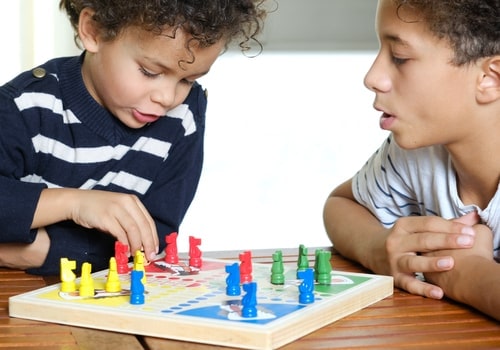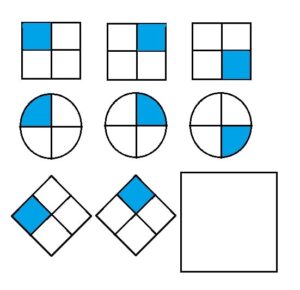
[ad_1]
Developmental toys and academic video games for youths are comparatively latest innovations. Do they work?

All through most of human historical past, youngsters obtained little or no formal instruction. As an alternative, they realized by imitation, and by honing new expertise by means of fake play (Lancy 2008). Immediately, we all know that play advantages mind improvement. It might promote problem-solving, too. And, as I clarify elsewhere, sure varieties of fantasy play might assist youngsters develop higher “govt perform” expertise, like the flexibility to remain centered.
However what in regards to the toys that youngsters play with? The board video games and video video games? Are there toys and video games that make youngsters into higher college students? Or higher residents?
Mother and father dwelling in high-tech cultures are particularly fascinated about toys that train. However “sensible” toys are a comparatively latest invention. Actually, adult-designed toys are unusual in non-industrial cultures, the place youngsters’s make-believe is generally the reenactment of mundane, on a regular basis grownup actions (Energy 2000).
In contrast, youngsters dwelling in complicated, literate societies are sometimes inspired to have interaction in elaborate, fake play, and that, says anthropologist David Lancy, is smart: Such play would possibly enhance a baby’s educational readiness, and improve his or her long-term financial prospects (Lancy 2008).
So it appears affordable to ask if toys can present youngsters with significant academic experiences, and certainly the reply is sure. For instance, take into account how intelligence is measured in standardized checks. In his ebook, Intelligence and Find out how to Get It: Why Faculties and Cultures Rely, psychologist Richard Nisbett notes that Raven’s progressive matrices — an intelligence check typically touted as “culture-free” — is steeped in tradition (Nisbett 2009). Check out a typical query (pictured right here).

Take a look at takers are meant to have a look at the primary two rows and determine the sample. Subsequent, they appears to be like on the backside row. What ought to come subsequent — within the empty field?
If we grant that individuals carry out higher when they’re accustomed to a process, then clearly there are experiences that may assist us remedy this drawback. A test-taker can have a bonus if she or he is accustomed to
- common geometric shapes
- analog clocks and clockwise motion
- the concept gradual, stepwise modifications may be depicted by a sequence of photos
- the idea that it’s okay to generalize a rule from solely two prior examples
You’ll be able to most likely consider extra. However the level is that this: Every of these components should be realized, and a few folks—together with nearly all of our ancestors—didn’t be taught them.
That’s one motive why IQ scores have risen during the last century. It’s not that individuals have turn out to be intrinsically smarter. It’s that their tradition is doing a greater job coaching them within the areas that assist folks succeed on IQ checks (Flynn 2007). And the place does this coaching happen? At college, sure. However different locations, too. At house, in books, on tv, on the pc, and thru publicity to toys and academic video games.
What’s true for studying about shapes is probably true for different issues—like buying superior language expertise or growing “quantity sense.”
So the actual query is: Which toys and video games provide the simplest academic experiences? Sadly, there isn’t a lot analysis to information us. For instance, the overwhelming majority of supposedly tutorial digital video games haven’t been rigorously examined for his or her academic results. Then once more, there was surprisingly little rigorous analysis on the results of taking part in chess. And even on the results of taking part in with blocks.
Nonetheless, we now have good motive to suppose that some toys and video games present youngsters with greater than mere leisure.
Which toys and academic video games are supported by analysis?
In these pages, I evaluate what printed research inform us about toys and academic video games for youths. In case you are questioning what to spend your cash on, place to start is my article about development toys. As I be aware there, toy blocks are linked with higher language improvement and better achievement in math. There may be additionally motive to suppose that development toys hone spatial expertise and encourage youngsters to observe profession paths in science, engineering, and know-how.
As well as, there’s experimental proof that sure board video games enhance math expertise. As an illustration, when younger youngsters (aged 4 to six) play board video games with conventional cube (every face exhibiting a distinct variety of dots), they could enhance their counting expertise (Gasteiger and Moeller 2021).
Extra typically, I feel it’s affordable to imagine that many board video games promote analytical expertise—if we mix them with express classes in crucial considering. For extra info, see my evidence-based articles about board video games and instructing crucial considering to youngsters. Searching for extra suggestions? Take into account these:
- Tangram puzzles have been endorsed by The Nationwide Council of Instructor’s Arithmetic (NCTM). Study extra about it from this Parenting Science article, which features a printable template for making a set of tangrams at house.
- Cooperative board video games might foster social and significant considering expertise. They’re additionally a sensible choice for younger youngsters, and a refreshing different to quaint preschool video games like Sweet Land™, which may be tedious to play. Learn extra about the advantages of cooperative play in this Parenting Science article.
- Researcher-designed celebration video games might assist older youngsters “tune in” to the views of different folks. As I clarify in my round-up of evidence-based social expertise actions, youngsters who performed Buffalo: The Identify Dropping Sport™ had been subsequently extra fascinated about combating social stereotypes (Kaufman and Flanagan 2015).
- Mind scan research recommend that younger youngsters observe their “mind-reading” expertise (tuning into ideas, emotions, and needs) after they play with dolls (Hashmi et al 2022), and researchers suspect that children be taught to motive about doable phrases after they interact in fake play (Wente et al 2022). So even a easy, low-tech doll may be thought of an academic toy.
- Preschoolers can hone their govt perform expertise — together with elements of consideration and impulse management — by taking part in social video games like “Purple Gentle, Inexperienced Gentle” (Tominey and McClelland 2009). For extra info, see advice #4 in my article, “Educating self-control: Proof-based suggestions.”
What about video video games?
As famous above, there hasn’t been a number of rigorous analysis in regards to the academic results of video video games. On the unfavorable aspect, there’s proof that taking part in violent video video games can put us in a state of mind — if solely briefly — that makes us much less sympathetic to the plight of victims. There may be additionally analysis suggesting that some youngsters undergo from online game “dependancy.”
However there’s excellent news, too. Research suggestion that sure sorts of video video games can improve visible consideration expertise, and possibly even assist youngsters with dyslexia be taught to learn. For extra inforation, see my article, “Video video games and a spotlight: Gaming enhances some consideration expertise, and hinders others.”
As well as, experiments point out that some “motion” video video games can enhance visual-spatial efficiency, particularly the flexibility to trace a number of objects in a fast-moving setting (Oei and Patterson 2015; Oei and Patterson 2013). And a few video games — like “Kerbal House Program” (for highschool college students), and these suggestions from CommonSense.org — might help youngsters grasp science ideas.
Extra about toys and video games for youths
For extra ideas, go to the Parenting Science Amazon retailer. A portion of your buy will assist help this web site. And take a look at my Parenting Science article about gendered play: “Woman toys, boy toys, and parenting: The science of toy preferences in youngsters.”
References: Developmental toys and academic video games for youths
Flynn JR. 2007. What’s intelligence? Cambridge College Press.
Gasteiger H and Moeller Ok. 2021. Fostering early numerical competencies by taking part in standard board video games. J Exp Baby Psychol. 204:105060.
Hashmi S, Vanderwert RE, Paine AL, Gerson SA. 2022. Doll play prompts social considering and social speaking: Representations of inner state language within the mind. Dev Sci. 25(2):e13163.
Kaufman G and Flanagan M. 2015. A psychologically “embedded” strategy to designing video games for prosocial causes. Cyberpsychology: Journal of Psychosocial Analysis on Our on-line world, 9(3), article 1.
Lancy DF. 2008. The anthropology of childhood: Cherubs, chattel, and changelings. New York: Cambridge College Press.
Nisbett RE. 2009. Intelligence and how you can get it. New York: WW Norton and Firm.
Oei AC and Patterson MD. 2015. Enhancing perceptual and attentional expertise requires frequent calls for between the motion video video games and switch duties. Entrance Psychol. 6:113.
Oei AC and Patterson MD. 2013. Enhancing cognition with video video games: a a number of sport coaching examine. PLoS One. 2013;8(3):e58546.
Energy TG. 2000. Play and exploration in youngsters and animals. Mahwah, NJ: Lawrence Erlbaum Associates.
Priewasser B, Roessler J, Perner J. 2013. Competitors as rational motion: why younger youngsters can’t admire aggressive video games. J Exp Baby Psychol. 116(2):545-59.
Tominey S and McClelland M. 2011. Purple Gentle, Purple Gentle: Findings From a Randomized Trial Utilizing Circle Time Video games to Enhance Behavioral Self-Regulation in Preschool. Early Schooling & Growth 22(3): 489-519.
Wente A, Gopnik A, Fernández Flecha M, Garcia T, Buchsbaum D. 2022. Causal studying, counterfactual reasoning and fake play: a cross-cultural comparability of Peruvian, mixed- and low-socioeconomic standing U.S. youngsters. Philos Trans R Soc Lond B Biol Sci. 377(1866):20210345.
Content material of “Good toys and academic video games for youths” final modified 12/2022. Parts of the textual content derive from a earlier model of this text, written by the identical writer.
picture illustrating the kind of questions present in Raven’s Progressive Matrices copyright Parenting Science
picture of children taking part in board sport by Frolphy / shutterstock
[ad_2]